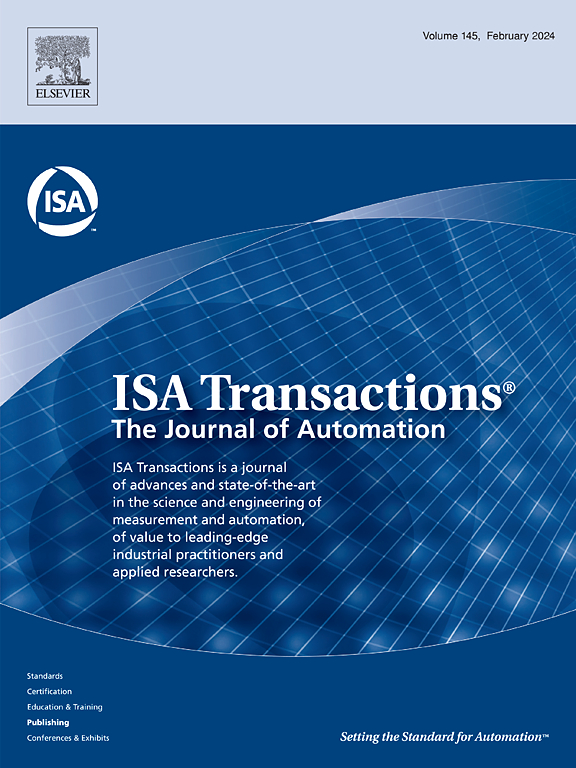Impact analysis of capacitive energy storage integration on load frequency control performance of microgrids employing a new dual-stage controller
IF 6.3
2区 计算机科学
Q1 AUTOMATION & CONTROL SYSTEMS
引用次数: 0
Abstract
A microgrid (MG) with inherent low inertia and renewable energy sources (RES)-based generators may encounter difficulties in maintaining frequency stability due to load changes. In order to mitigate frequency stability concerns, it is imperative to use energy storage units (ESUs). Objective of this study is to analyze the impact of capacitive energy storage unit (CESU) integration on the load frequency control (LFC) performance of two distinct MG systems. A new dual-stage controller is proposed as a secondary controller for the LFC study. Parameters of the controller are optimized employing a recently developed arithmetic optimization algorithm (AOA). Performance of the suggested control approach is evaluated against several standard control approaches. Simulation findings demonstrate that with CESU integration the suggested controller markedly enhances frequency and tie-line power deviation responses and their transient characteristics for both the MG systems. A maximum improvement of 98.50% in peak overshoot, 94.88% in peak undershoot, and 77.18% in settling time is observed with the suggested control approach. This study further justifies the robustness of the proposed control approach against the MG systems parameter variations, impact of CESU integration through statistical analysis, small signal stability of both the MG systems, and convergence performance of the AOA.
采用新型双级控制器的电容储能集成对微电网负荷频率控制性能的影响分析。
固有低惯性的微电网和基于可再生能源(RES)的发电机可能会因负荷变化而难以保持频率稳定。为了缓解频率稳定性问题,必须使用储能单元(esu)。本研究的目的是分析电容储能单元(CESU)集成对两种不同的MG系统负载频率控制(LFC)性能的影响。提出了一种新的双级PIλ-(1+PDμF)控制器作为LFC研究的二级控制器。采用一种新的算法优化算法(AOA)对控制器参数进行优化。根据几种标准控制方法对所建议的控制方法的性能进行了评估。仿真结果表明,集成CESU后,所提出的控制器显著提高了两个MG系统的频率和联络线功率偏差响应及其暂态特性。该控制方法最大改善峰值超调98.50%,峰值欠调94.88%,沉降时间77.18%。通过统计分析进一步证明了所提出的控制方法对MG系统参数变化、CESU集成的影响、MG系统的小信号稳定性和AOA的收敛性能的鲁棒性。
本文章由计算机程序翻译,如有差异,请以英文原文为准。
求助全文
约1分钟内获得全文
求助全文
来源期刊

ISA transactions
工程技术-工程:综合
CiteScore
11.70
自引率
12.30%
发文量
824
审稿时长
4.4 months
期刊介绍:
ISA Transactions serves as a platform for showcasing advancements in measurement and automation, catering to both industrial practitioners and applied researchers. It covers a wide array of topics within measurement, including sensors, signal processing, data analysis, and fault detection, supported by techniques such as artificial intelligence and communication systems. Automation topics encompass control strategies, modelling, system reliability, and maintenance, alongside optimization and human-machine interaction. The journal targets research and development professionals in control systems, process instrumentation, and automation from academia and industry.
 求助内容:
求助内容: 应助结果提醒方式:
应助结果提醒方式:


